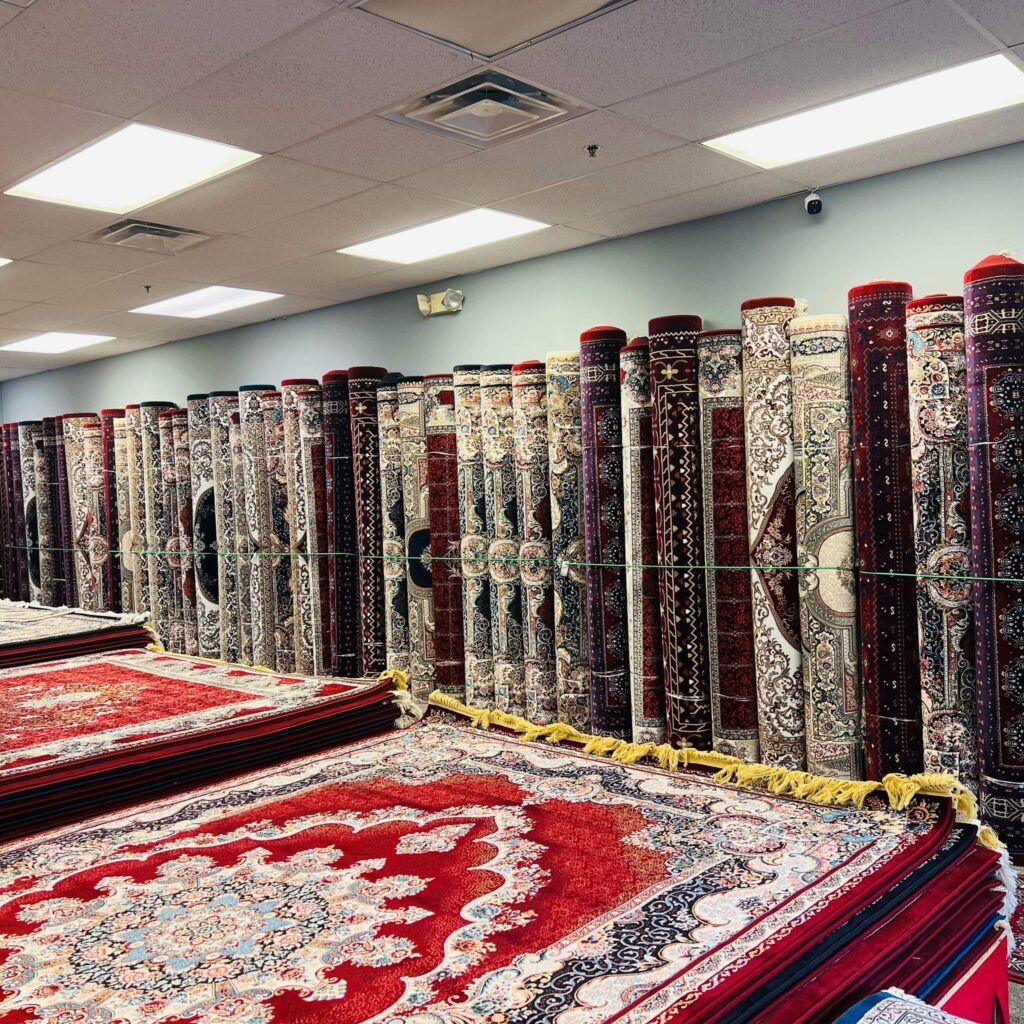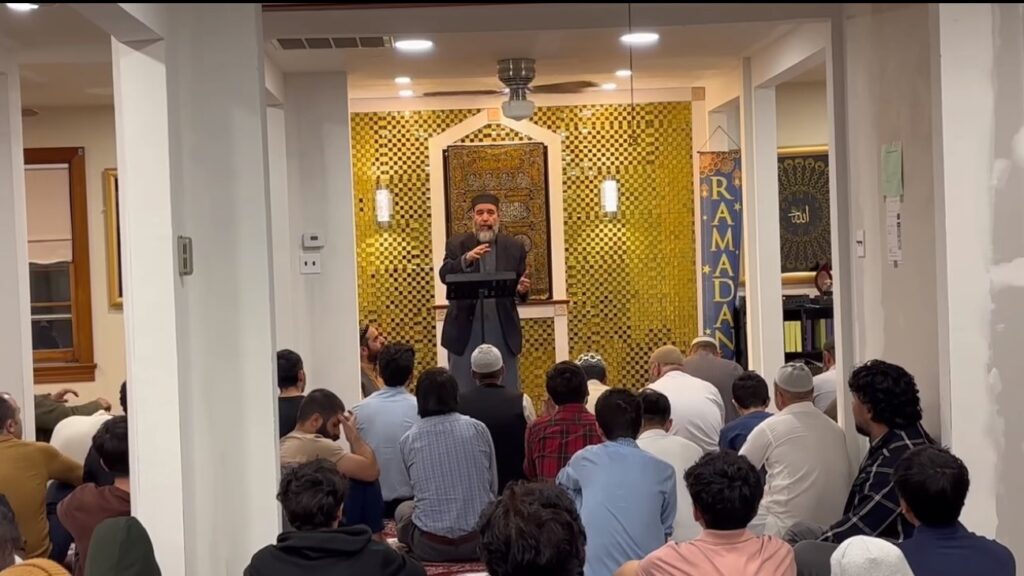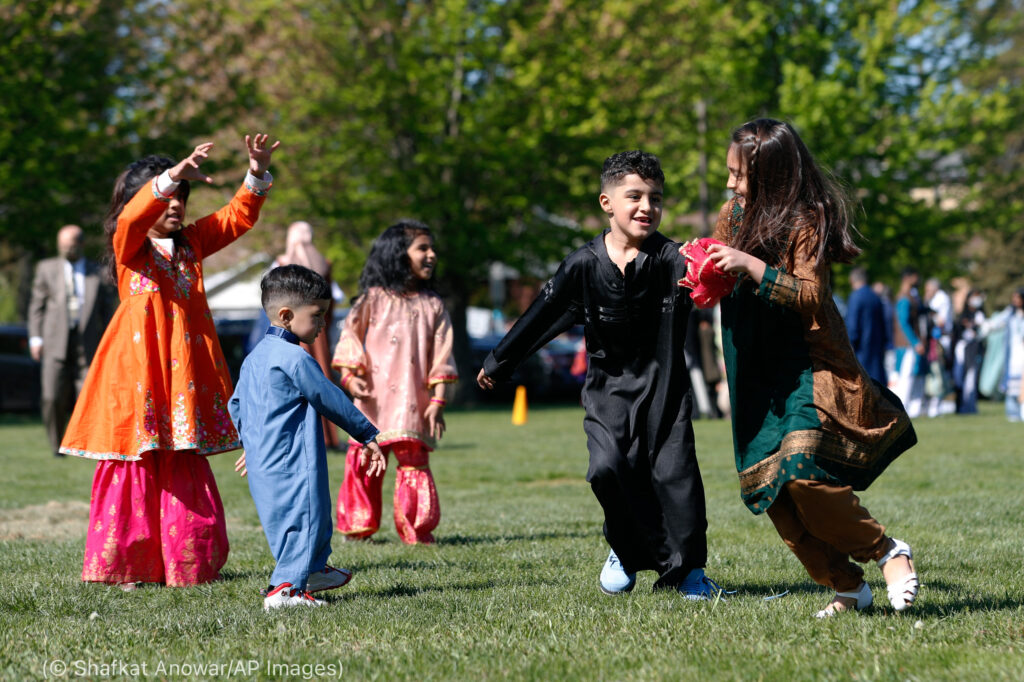Washington (Kubha News) – America is the largest immigrant-receiving country in the world, and every year millions of people come to this country for tourism, education, work, and living, and the citizens of every country have their own community in every state.
In addition to Afghans who had come to this country in the past, more than two hundred thousand Afghans have entered America since 2021 when the Taliban regained power in Afghanistan.

Nawroz Mohammadi, a former employee of USAID in Afghanistan, arrived in America in October 2023.
Mohammadi, who lived in the Ferozkoh of Ghor province, was worried about cultural differences when he first came to America, but by celebrating his first Eid in Stafford, Virginia, his concerns diminished.
“This is the first time I celebrate Eid outside of Afghanistan, contrary to my expectations, it wasn’t very alienating. Because besides the availability of religious and cultural ceremonies, things needed for celebrating our cultural ceremonies like clothes and dried fruits are easily accessible here.”
Afghans have facilitated access to household items and essentials mostly used in Afghanistan by starting small businesses, especially opening stores in different states across America.
Now, Afghans have gathered in some American states and established their own Islamic centers.

In these centers, besides conducting religious ceremonies, religious issues is teaching to adolescents and children by instructors, and cultural circles are also held for men and women.
Shogufa Alizie, a teacher at Lashkargah School in Helmand Province who also was leading a small handicrafts fabric for women, has not forgotten to celebrate Eid in the Afghan way since coming to America.
Mrs. Alizie, who lives in Washington D.C., told Kubha News: “Contrary to Afghanistan, where we had three days off for Eid and were visiting friends and relatives all three days, here in America, only the first day of Eid is a holiday for those with official jobs. However, for those with personal businesses, especially housewives, there are more facilities to celebrate Eid, and following the tradition of our homeland, we spent three days of Eid visiting friends and celebrating.”
Families’ biggest concern is about greater cultural differences regarding the future of their children. Because there is no unified culture in America, and due to the diversity of immigrants, they develop significant cultural differences in society.
Shafiq Sardar, a former sociology professor at Balkh University who came to America two years ago, works as a cultural instructor at an immigrant reception center in Ohio.
Mr. Sardar says that Afghans have created an environment similar to Afghanistan for raising their children in America through their collective efforts: “One concern people have here is raising their children based on Afghan customs. Because children spend all day at school with kids from different countries who have different cultures and beliefs. But by celebrating religious and traditional ceremonies, such as attending Taraweeh prayers, celebrating Eid, and visiting friends’ homes, these values are ingrained in their minds and do not become alienated from our culture.”
This Afghan sociologist, who is actively involved with immigrants from various countries in his official duty, says that most Muslim immigrants who are new to America like the social life of Afghans.
Because, according to him, the work pressure and financial burdens of newcomers to America affect their mental health, but Afghans have social life, and they collectively solve the problems of their social life.
